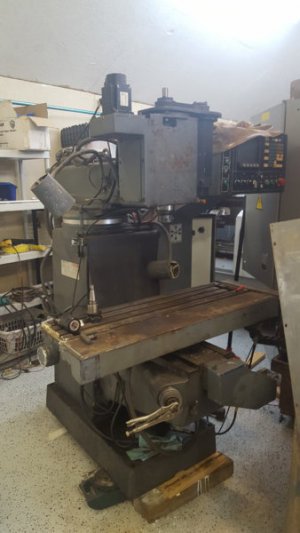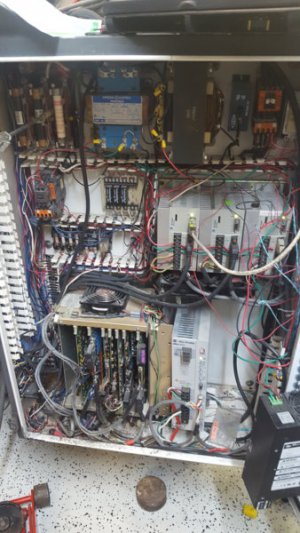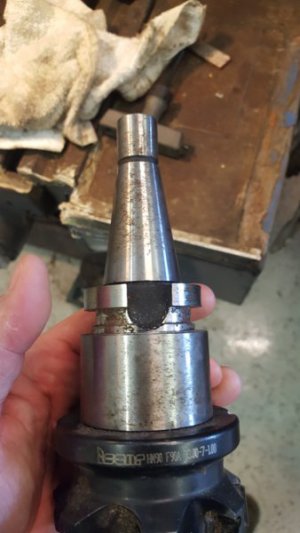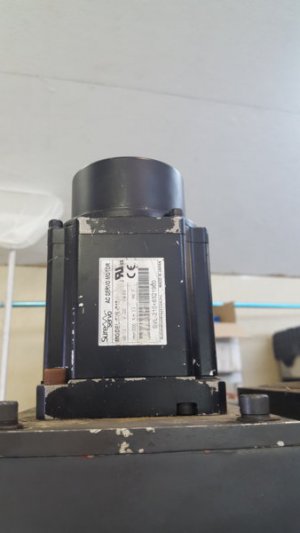- Joined
- Oct 29, 2012
- Messages
- 1,387
I've wanted a CNC mill for years but can't afford. I like things like the proto-trak bridgeport and the PM45-CNC. Watched all kinds of videos and forum threads on CNC-izing manual mills. I think it would be easier to buy an older actual CNC machine and retrofit the controls, but the problem there is those machines are usually huge.
I came across a Pratt & Whitney Tapemate Series D (circa 1985) here locally and I'm going to go have a look at it tomorrow. I've never heard of one, but it seems not much bigger than a bridgeport, and seems to be in good shape and running with the original controls. I did a bit of research on it and found some people saying it's a glorified drill press and not cut out for milling - those comments came from a less-hobby-oriented site (I think you know the one - Practical M.). Other people said it works fine for milling. There's a video of an already retrofitted one milling, here:
Do you think it's worth investing in? How much would you offer for it, assuming it's in good shape (asking price is $4800)? What should I look at when I go to see it?
Here's a video of the actual machine in question:
I came across a Pratt & Whitney Tapemate Series D (circa 1985) here locally and I'm going to go have a look at it tomorrow. I've never heard of one, but it seems not much bigger than a bridgeport, and seems to be in good shape and running with the original controls. I did a bit of research on it and found some people saying it's a glorified drill press and not cut out for milling - those comments came from a less-hobby-oriented site (I think you know the one - Practical M.). Other people said it works fine for milling. There's a video of an already retrofitted one milling, here:
Do you think it's worth investing in? How much would you offer for it, assuming it's in good shape (asking price is $4800)? What should I look at when I go to see it?
Here's a video of the actual machine in question:




